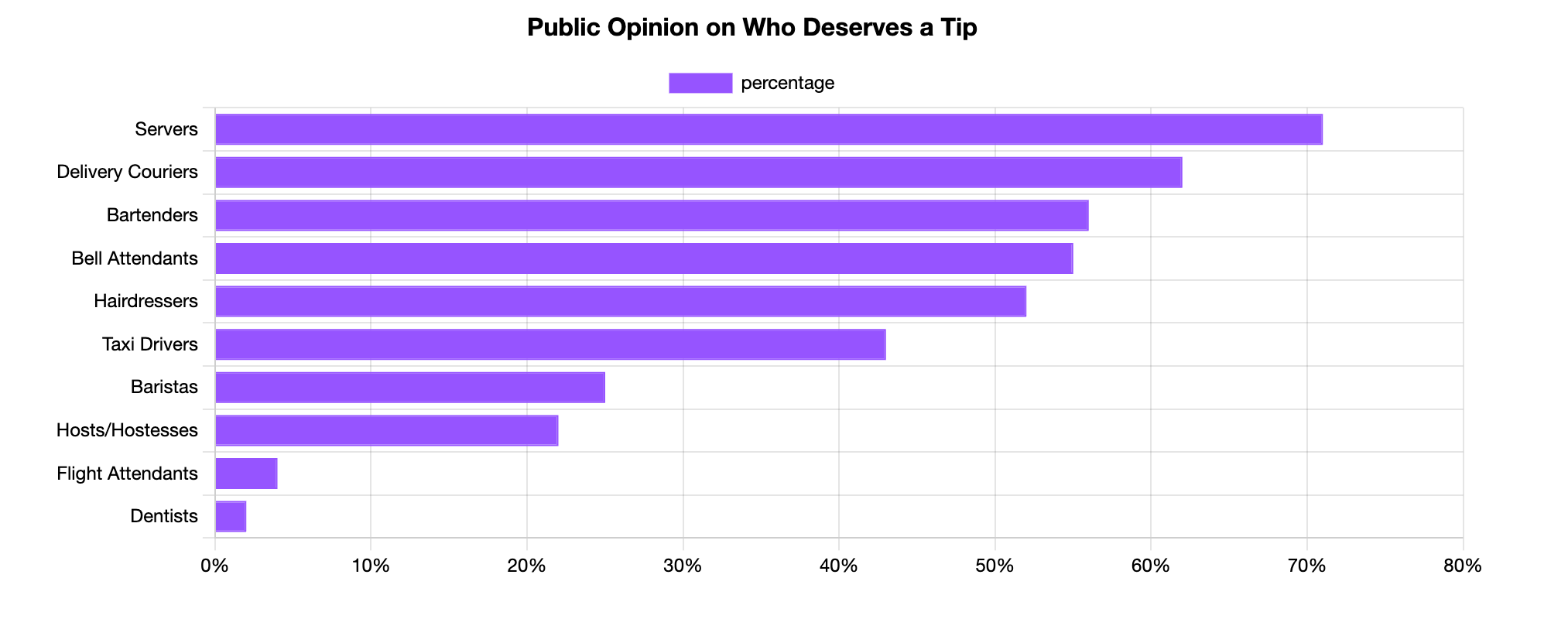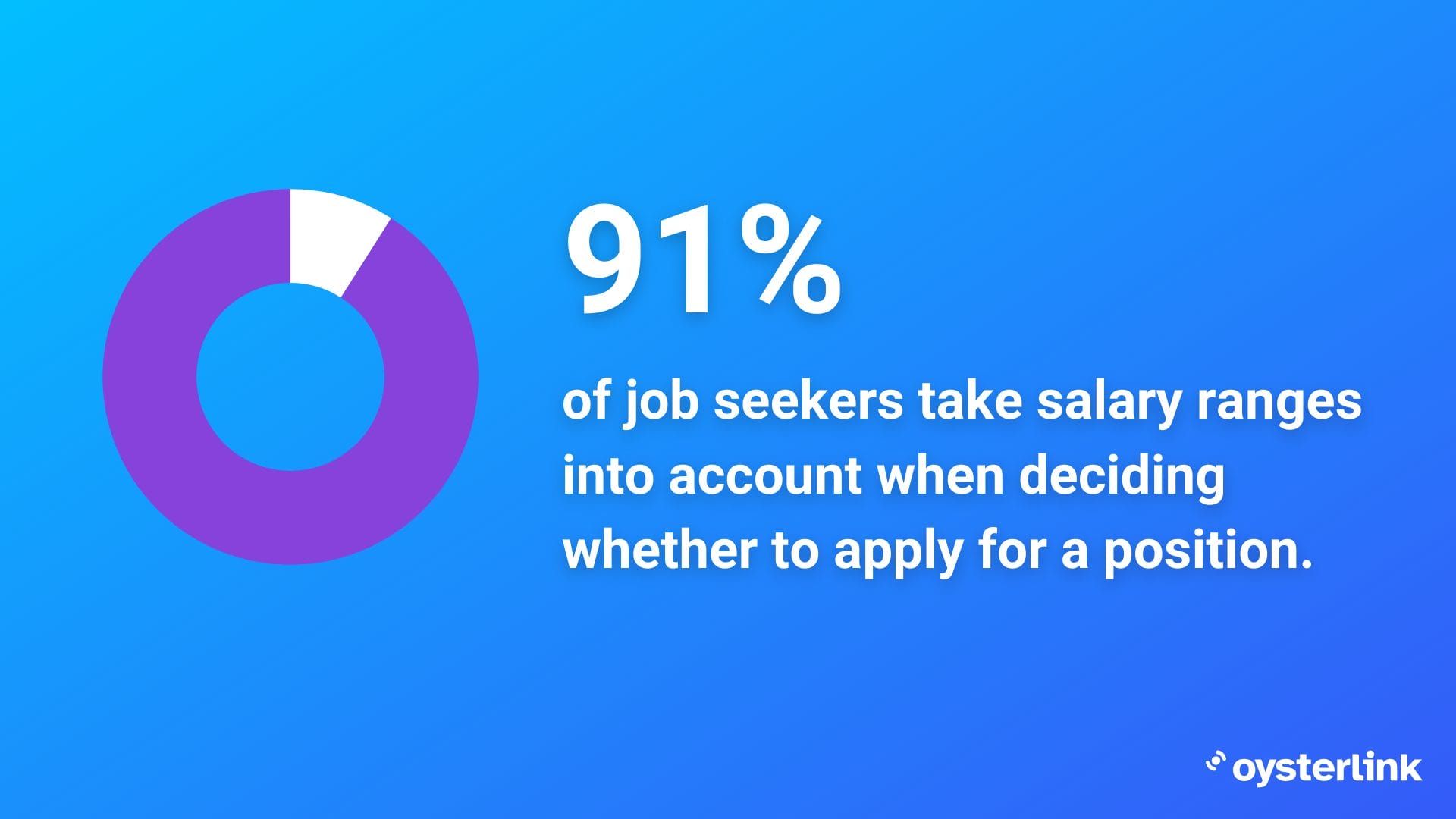Restaurant owners face a persistent challenge: 75% of restaurants struggle to find and keep qualified tipped employees. The competition for experienced Servers, Bartenders and other service staff grows fiercer each day.
This guide provides everything you need, from legal requirements to compensation details, equipping you with the tools to attract the best talent in hospitality. You’ll discover proven strategies to make your job listings stand out and attract qualified candidates who align with your restaurant’s unique needs.
Understanding Tipped Position Requirements
Restaurant owners must grasp several key requirements before posting jobs for tipped positions. Federal law defines tipped employees as workers who receive more than $30 per month in tips.
However in some states, such as Hawaii, Massachusetts, and Texas, the threshold is set at $20/month.
In the hospitality industry, this typically includes positions such as Servers, Bartenders, Bussers, and Food Runners. These roles are crucial to a restaurant’s success, and understanding the specific requirements for these positions ensures you're compliant while attracting top-tier talent.
Legal requirements for tipped employees
The law requires clear statements about wage compliance in your job postings. Your tipped employees must receive a minimum cash wage of $2.13 per hour, with total earnings reaching at least $7.25 per hour including tips. Remember that state laws often differ - some demand higher base wages or completely prohibit tip credits.
Common tipped positions and their unique needs
Each tipped position in hospitality comes with specific duties and earning potential. High-end establishments typically offer better tipping opportunities. The most sought-after positions include:
Among the professions considered most deserving of tips, 71% of people believed restaurant workers should receive them, with hospitality jobs such as Servers and Bartenders receiving widespread support.

[Source: Statista]
Required skills and qualifications
Top performing tipped employees share several essential skills:
- Strong customer service abilities
- Excellent time management
- Multitasking capabilities
- Clear communication skills
- Professional demeanor
- Basic math proficiency
Some roles need specific certifications. For example, Servers handling alcohol must complete TIPS certification within 30 days of starting work. Understanding these requirements helps create job postings that connect with qualified candidates who match your needs.
Crafting an Effective Job Title and Description
The success of your job posting depends heavily on its basic elements. Here's how to create listings that catch the attention of qualified hospitality professionals.
Choosing the right job title
Simple, searchable titles work best for tipped positions. Job postings with titles between 10-20 characters receive twice as many clicks as those over 60 characters. Skip creative titles like "Beverage Artist" - stick to standard terms like "Server" or "Bartender" that match what candidates actually type into job search bars.
Writing clear job responsibilities
Strong job descriptions paint a clear picture of daily work life. Focus on the core tasks that make up 80% of the role. A Server's listing might highlight table service, guest interactions, and payment processing. Remember to mention specific tools or systems your team uses - whether it's your POS system or reservation platform. For example:
Including must-have vs nice-to-have requirements
Smart employers separate essential qualifications from preferred ones. Key must-haves typically include:
- Required certifications or licenses
- Essential technical skills
- Minimum experience level
- Physical requirements
- Schedule availability
Strict requirements can reduce your applicant pool by nearly half. Label non-critical qualifications as "preferred" or "nice-to-have" to encourage promising candidates who might not check every box. This approach helps you find talented staff who can grow into the role while maintaining core standards.
Communicating Compensation Clearly
Clear compensation details make your job posting stand out to qualified candidates. Top performers want to know their earning potential before applying, making transparency about base pay and tips essential.
Explaining base pay and tip structure
The federal minimum cash wage for tipped employees is $2.13 per hour. Your job posting must explain how employees reach the federal minimum wage of $7.25 per hour through combined base pay and tips.
Restaurant owners who clearly explain their tip structure see 40% more qualified applicants.
Highlighting additional benefits
Strong candidates look beyond base pay to total compensation. You can set your restaurant apart by showcasing these benefits:
- Health insurance coverage
- Paid time off
- Flexible scheduling options
- Professional development opportunities
- Employee meal discounts
Being transparent about earning potential
Tipped positions offer excellent earning opportunities. Tipped Servers earn a median of $27.00 per hour nationally, with top performers reaching $41.50. Sharing these numbers helps candidates see the real income potential of service positions.
Your posting should mention wage guarantees - you'll cover any gap if tips plus base pay fall below minimum wage. This builds trust with candidates. For restaurants using tip pooling, explain your system clearly since it directly affects take-home pay.
Plus, pay transparency does more than meet legal requirements - it attracts better candidates. Studies show 91% of job seekers consider salary ranges when deciding to apply. Restaurants that share complete compensation details typically fill positions faster with more qualified staff.
This transparency not only attracts more applicants but also enhances the company's reputation. The same study revealed that 82% of respondents have a more favorable impression of a company when salary ranges are included in job descriptions.
By openly sharing salary information, employers can build trust with potential candidates, streamline the hiring process, and promote pay equity. This approach aligns with the growing trend toward salary transparency, which benefits both employers and job seekers.

Optimizing Your Job Posting
Smart optimization helps your job posting reach qualified candidates. In fact, studies show that 70% of job seekers start their search on Google. As a result, your posting needs the right keywords and format to appear in these searches.
Using industry-specific keywords
Restaurant job postings need specific terms to rank well in searches. Include these proven keywords:
- Restaurant service positions
- Food and beverage service
- Hospitality experience
- Customer service skills
- Cash handling
- Food safety certification
Formatting for readability
60% of the population reads at a B1 language level. Clear formatting makes your posting easy to scan. Follow these tested guidelines:
- Keep paragraphs short (3-5 sentences)
- Use clear subheadings
- Create scannable bullet points
- Choose readable fonts
- Include white space between sections
Dense blocks of text drive candidates away. Short, clear sentences help all readers, especially the 15-20% of people with language-based learning difficulties.
Selecting the right job boards
The right job board brings better candidates. While Indeed and ZipRecruiter reach many job seekers, hospitality-specific platforms like OysterLink often deliver more qualified applicants.
Keep your listings fresh; outdated postings hurt your reputation.
Make sure to add complete details about location and hours to help local candidates find your posting. In fact, restaurant owners who update listings weekly see 30% more qualified applications.
Conclusion
Creating effective job postings for tipped positions demands more than basic job details. Restaurant owners who follow these proven strategies consistently attract qualified servers, bartenders, and hospitality professionals to their establishments.
Strong job postings combine legal compliance with clear compensation details. Your listing needs precise job titles, detailed role descriptions, and smart optimization techniques to stand out in today's competitive market. Restaurant owners report 60% more qualified applications when following these guidelines.
Transparency builds trust with potential employees. Share real earning potential, growth opportunities, and clear benefit packages. Top performers look for restaurants that openly discuss wages, tips, and advancement paths.
The difference between attracting exceptional staff and settling for average candidates often comes down to your job posting quality. Take time to craft listings that showcase your restaurant's strengths. Well-written postings serve as powerful tools to bring dedicated hospitality professionals to your team.










Loading comments...